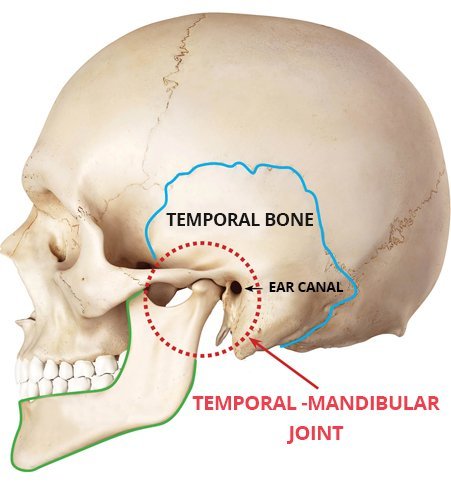
My Image Source: Envato
Do you know about TMJ problem ? It is common joint pain. Your temporomandibular joints (TMJ) are those that connect your lower jaw to your skull and, while you might not think about them, you use them more than you realize. Every time you open your mouth to eat, drink, speak, or breathe, you’re using those joints. A TMJ disorder is often the result of an injury or another condition in which those joints are difficult to use. It can cause a popping sensation, limit the mobility of the jaw, or cause the jaw joints to lock. Fortunately, there are a few exercises you can do at home to alleviate this condition.

What To Do If You Suffer From TMJ Problem
Relax Your Jaw
Aside from seeking professional TMJ treatment in North Carolina, for example, you should practice exercises to keep your jaw limber. One of the most effective activities is to relax your jaw to give it time to heal. This is done by pressing your tongue against the roof of your mouth just behind your upper teeth. Allow your mouth to remain open naturally to relax the joints of the jaw.
Try the Goldfish Exercise
Your temporomandibular joints are located just in front of each ear. Place a finger over the joint in front of one ear as you press your tongue against the roof of your mouth. The middle finger or pointing finger of the opposite hand should be placed against the chin. Once your fingers are in place, drop your jaw until your mouth is halfway open. At this point, you should experience some minor discomfort, but there shouldn’t be any pain. Opening and closing the mouth constitutes one rotation and there should be six rotations to a set. You should do a minimum of six sets each day.
Resisted Opening and Closing of the Mouth
Another good exercise for strengthening jaw muscles and reducing the occurrence of TMJ dysfunctions is to give your jaw some resistance training. To open your mouth, place a thumb under your chin and press upwards as you open your mouth. Once open, hold your mouth in this position and keep applying resistance with your thumb for three to five seconds. You can apply resistance in closing your mouth by holding your chin between your index fingers and thumbs. Place pressure on your chin as you close your mouth. You should also do six sets of six with these exercises each day.
[ Practical Ways of Dealing with Chronic Joint Pain ]
Invest in a Mouth Guard
In addition to performing TMJ exercises, you can reduce the severity of your TMJ problem by protecting against clenching your jaw as you sleep. You should get fitted with a customized mouth guard that you can wear to bed each night. This will keep you from grinding your teeth at night, which prevents the erosion of bone that can contribute to TMJ problems. The mouth guard also acts as a corrective device, helping to reset the alignment of your jaw over time.
You can assist the realignment of your jaw by sitting and standing with good posture. Poor posture puts your spine out of alignment, which also negatively impacts the position of your jaw’s joints. By sitting straight, you can ensure everything remains in better alignment, helping you to experience fewer symptoms of a TMJ dysfunction.
Alleviate Pressure
If TMJ dysfunction is a severe problem, your doctor or dentist may advise you to alleviate the pressure you’re putting on your jaw joints and muscles. For example, you may be advised to stick with soft foods that don’t require as much chewing. This will include avoiding gum chewing or eating hard candy. You should also avoid biting your nails since this activity can put excessive pressure on jaw muscles. It can also damage your teeth.
Yawning and singing should be avoided when possible as well. These actions cause the jaw to open wider than other types of activities, increasing the risk of a jaw joint jumping out of position. In that case, you’ll have to force it back into place by shifting your jaw from side to side until you feel a popping sensation.
If you still experience TMJ Problem
If you experience frequent TMJ problems, you may need to see a doctor to help you identify the cause. No matter what’s causing your symptoms, there are ways you can alleviate the condition. Addressing the problem soon can help you prevent breathing, eating, and sleep difficulties in the future.

Leave a Reply